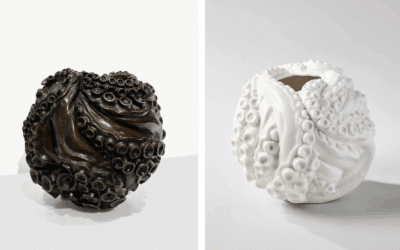Interesting to see how this will be greeted by the bottom-feeders.
In a follow-on to September's extension of music copyright law, a similar series of benefits have recently been applied to visual art and artists. The two are not really comparable except in the broadest of terms. Music is, for the purposes of rights adminsitration, split between two distinct rightsholders – the composer of a given work, and the performer of that work. Sometimes they're the same person, sometimes they are different and multiple. Visual art doesn't always have the same distinction between creator and performer (although it does depend on the nature of the artwork). Nevertheless, some of the same concerns apply.
Techdirts don't generally agree with content creators being paid for work they've done
September's copyright extension act was subject to a feeding frenzy of self-appointed pundits snowballing their opinions on the legislation via the blogosphere. Mainly, it was a race to the bottom, in which techdirt types pointed out the example of plumbers (always plumbers!) not receiving royalties on the work they had done years previously. 'Cliff's Law', was the term coined to describe an act of legislation which made it possible for the monetary income made by Cliff Richard's (or any other musical performer's) musical performances to be paid to his family or designated beneficiaries for seventy years after his (may it be many years hence) death. Techdirts don't generally agree with content creators being paid for work they've done after they've done it. Possibly because, in many cases, techdirts would like to be the ones making money from it instead.
the usual fevered shouting match between equally deaf parties
In music, the extension act means that, amongst other things, Cliff's cut of the retail price of 'Summer Holiday' doesn't just defer to the retailer in question once he's croaked. Nor could iTunes (if it were they) licence the tune to Thomas Cook to advertise weekend breaks in Madeira, and pocket the fee. Applications which, to be fair, tend not to apply to a well plumbed-in washing machine. Perhaps most importantly, for many musicians, was the other aspect of copyright. The aspect which was not mentioned much. Forget the money – copyright also designates control. Without copyrights, there is nothing to stop artistic work being applied to uses not endorsed by the rightsholder. Cliff wouldn't like his music being used to soundtrack a Dawkins-style atheism advertisement campaign and more than The Specials would like 'Ghost Town' to be the Conservative Party's electoral soundbyte.
Extension of copyright made for the usual fevered shouting match between equally deaf parties when it was applied to music back in September. It will be interesting to see how the public reacts to the newly-minted version of the concept to visual art. Or if it will even be noticed….
Artist’s Resale Right.
The families and beneficiaries of UK artists stand to benefit from millions in royalties from 1 January 2012 with the full implementation of the Artist’s Resale Right.
This important Right pays artists royalties each time their work is resold by an auction house or art dealer. The Right has applied to living artists since 2006, and DACS (the Design and Artists Copyright Society) has paid artists nearly £14 million in royalties in the last six years.
Artist Damien Hirst explains why he thinks the Artist Resale Right is so important:
I’m pleased that the Artist’s Resale Right is finally be extended to heirs and beneficiaries as in most other EU states. We need to recognise financially their role in preserving art. They spend a lot of time and energy on this and they should have some support.
The full implementation means that artists can leave this Right to their families with the royalties helping support the vital work carried out by estates to preserve the artist’s legacy after their death (and for 70 years following).
In addition, the Government has also just announced changes to the administration of the Right which will remove the requirement for artists’ beneficiaries to be of UK or EU nationality.
This amendment means that the Artist’s Resale Right can be passed on effectively to many more heirs and beneficiaries. The financial support from the Right will be enormously helpful in recognising the work that heirs and beneficiaries do through conserving artists’ estates including the costs of storage, conservation, cataloguing, research, restoration, assessment of provenance, and the identification of fakes.
Source: DACS

The aim of art is to represent not the outward appearance of things, but their inward significance. – Aristotle
















